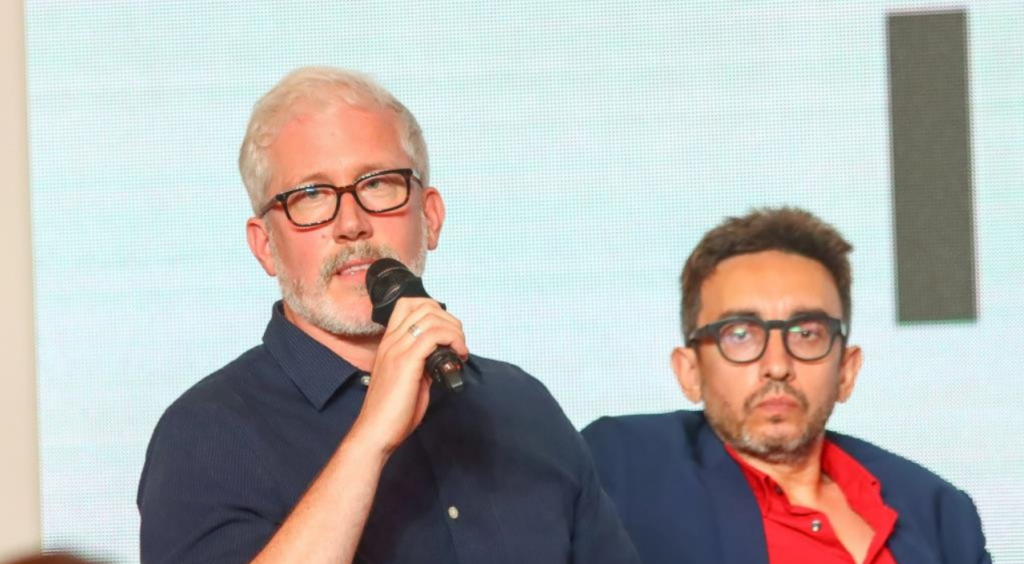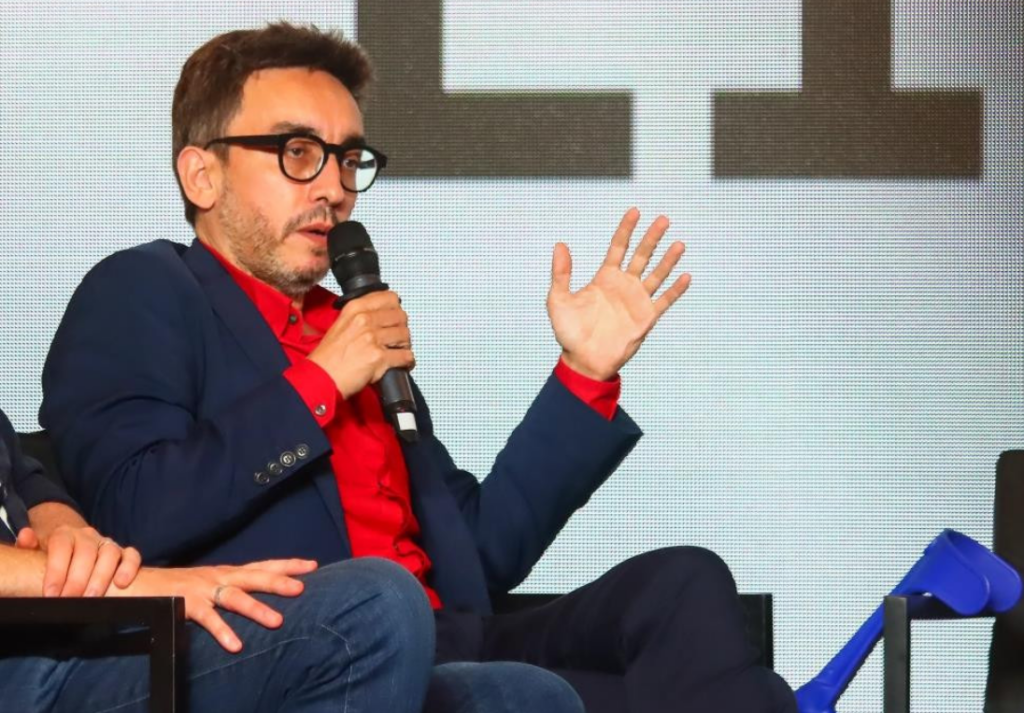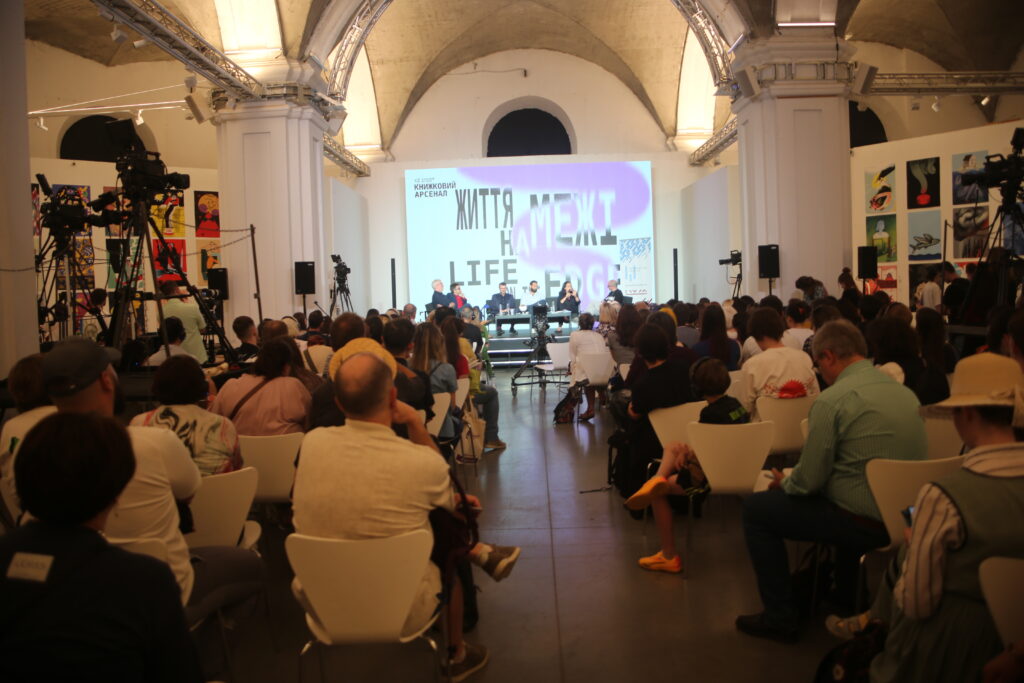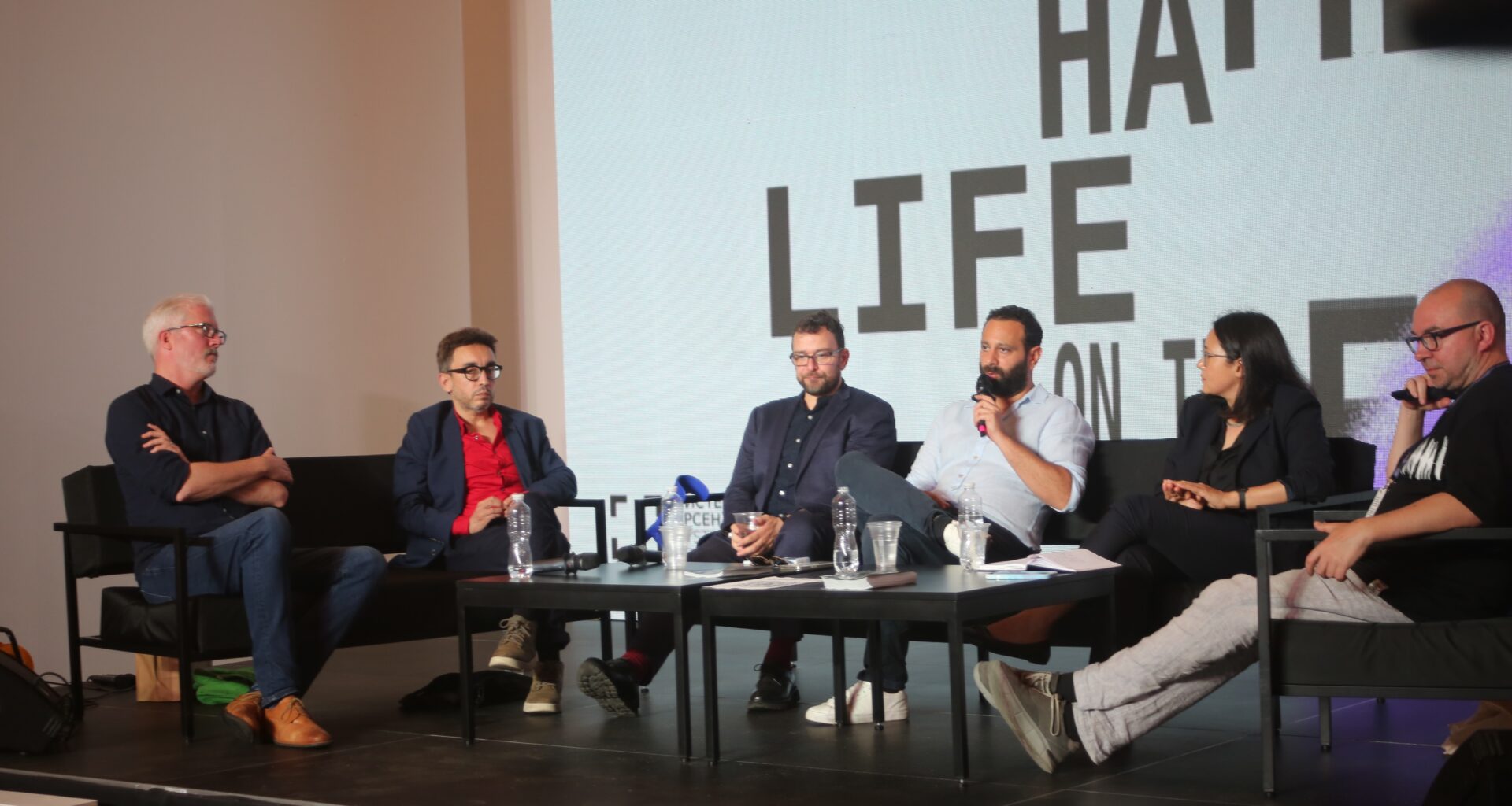The war in Ukraine has revealed a critical gap between Western perceptions and geopolitical realities. Outdated worldviews and flawed academic perspectives have led to a naivety that inadvertently bolsters Russia's imperial ambitions.
Western misconceptions about Ukraine's global position, history, and national identity permeate academia, media, and policy circles. These misunderstandings have resulted in a dangerous underestimation of Ukraine's strategic importance and Russia's territorial goals.
Euromaidan Press analyzes how Western misinterpretations of Ukraine have fueled the current crisis, featuring insights from Cambridge University's Ukrainian studies expert Rory Finnin and former Portuguese European Affairs Secretary Bruno Maçães, shared at Kyiv's Book Arsenal festival.
The myth of the buffer zone is Western scholars' blind spot
Rory Finnin, who founded Ukrainian studies at Cambridge in 2008, argues that Western scholars have long misunderstood Ukraine, with severe consequences.
"We studied Ukraine with arithmetic when we needed calculus," he says.
Finnin critiques a prevalent Western academic perspective that views Ukraine as a mere frontier or buffer zone between Europe and Russia.
"This metaphor is extremely dangerous because we can connect the dots between Western scholars writing about Ukraine as a gray zone and the Kremlin,” he explains.
Finnin contends that this simplification has made the West complicit in misunderstanding Ukraine. Instead, Ukraine should be viewed as both a frontier and center of events, as what is happening on the front line in Ukraine defines what will happen in Kyiv, and what will happen in Ukraine defines what will then happen in Paris and Berlin.

The concept of a frontier/center is deeply rooted in Ukrainian intellectual tradition.
“This is the way that Ukrainian thought leaders from historian Mykhailo Hrushchevskyy to the geographer Stepan Rudnytskyy to philosopher Vyacheslav Lypynskyi thought of Ukraine–as a center that marked a crossing of different cultures and traditions of east and west,” he explains.
Finnin also criticizes Western academia for collective amnesia about Crimea. Following the 2014 Russian annexation, the West largely ignored the militarization of the peninsula.
“We saw the consequences when in 2022, Russian troops invaded Ukraine from there," the scholar notes.
He expresses concern about Western intellectuals becoming complacent about occupied Ukrainian territories, stating he's uncomfortable "watching it happen again."
The West underestimated Russia's economic resilience
Bruno Maçães, a former Portuguese diplomat, argues that many mistakenly view Russia's invasion of Ukraine as a West-Russia struggle, overlooking the broader global context. He contends that Western leaders misunderstand the dynamics of today's global economy, particularly the shift of power from Europe to Asia—a shift that directly influenced Russia's war against Ukraine.
"Why is the Russian economy stable? Three days after 24 February 2022, President Biden said, 'We are going to collapse the Russian economy.' Why didn't it happen? Because the world is very different from what Biden thinks," Maçães explains.

He argues Putin anticipated this, knowing he could continue exporting oil and gas to countries like India, Indonesia, and China. The result was a global "reshuffling of the oil trade" that has allowed Russia to finance its war effort.
The ineffectiveness of the Western oil price cap on Russia further demonstrates the limits of Western geopolitical influence. Maçães notes that the US needs India to balance against China and thus cannot enforce the cap.
He says this new global economic reality has directly influenced Russia's decision-making.
"If the world economy were still what it was 20 or 30 years ago, Russians would not have invaded Ukraine because they knew that the Russian economy would not survive the shock," he concludes.
Western aid to Ukraine is constrained by self-interest
Maçães warns against framing Russia’s war in Ukraine as "the West against the rest," as this raises questions about Ukraine's own position within the Western sphere.
Maçães quotes an unnamed US National Security Council member: “We will support Ukraine in whatever Ukraine needs, provided it doesn't raise the risks for the US or NATO members. There are three levels: the US, NATO members, and Ukraine.”
This hierarchical mindset explains Washington's reluctance to authorize deep strikes inside Russia with American-made arms, as it's seen as escalating risks for NATO and the US.
"It is a dangerous framework that leaves much of the world out of the discussion. So I would try to resist it," warns Maçães.
Europe's imperial past shapes its modern views of Ukraine
Russia’s invasion of Ukraine has revealed colonial ghosts in the closets of European nations, Maçães says.
The former Portuguese diplomat believes that Europe often turns a blind eye to colonialism due to nostalgia for the 19th century, particularly on the far-right. He observes a stark divide in far-right party allegiances across Europe.
"Where do you find far-right parties that support Russia rather than Ukraine? You find it in old imperial powers," Maçães notes.
He explains this divide stems from differing historical experiences:
- In countries like Poland, far-right nationalism is rooted in anti-colonial struggle.
- In former colonial powers like France, it's based on imperial nostalgia.
"In Poland, in particular, far-right nationalists think about the struggle against colonialism, whereas in France, they think back to the glorious times as a colonial power," Maçães concludes.

The West underestimated the stakes in Ukraine
Finnin emphasizes the global impact of Russia's war against Ukraine.
"It is about Europe. It is about the broader Western globe. And that is not a cliché," he stresses.
He warns of potential consequences if Russia's invasion had succeeded—a domino effect that could have destabilized the entire region.
"If Putin had conquered Ukraine in three days, he would be in Georgia by now, he would be in Moldova by now. Because why wouldn't he?" the scholar says.
Finnin concludes that the outcome of the war will define Europe's power and security for decades. For Ukraine, the stakes are even higher—its very identity and existence as a nation.
"Russians dismiss the Ukrainian entities by saying 'you are Russians, but you are not experiencing Russianness.’ That means Ukrainians’ experience is irrelevant," warns the scholar.
Meanwhile, Maçães stresses that the Western logic of aiding Ukraine only if it steers clear of perceived “escalation” with Russia is flawed: limiting support for Ukraine inadvertently signals weakness in NATO and the US, emboldening Russia and its allies. Such hesitation encourages further aggression, allowing Russia and its allies to creep towards NATO borders and scale up defense production gradually. Meanwhile, Europe and the US deliberate, akin to the proverbial frog in slowly boiling water.
"We have to turn our perspective around and say it's about Ukraine's victory," Maçães stated.
The goal should not merely be Russia's defeat but Ukraine's survival and prosperity.
"Ukraine has to come out of the war with all its territory, with a vibrant society integrated into the European Union, where people can pursue their dreams," the former diplomat says.
Read more:
- US academia still in thrall of “great Russia” myth
- Why post-Russian Studies are the future for a post-Russia world
- NATO must abandon “Russia-Ukraine War” delusion
- It’s time to free Ukrainian studies from behind the Russian curtain

